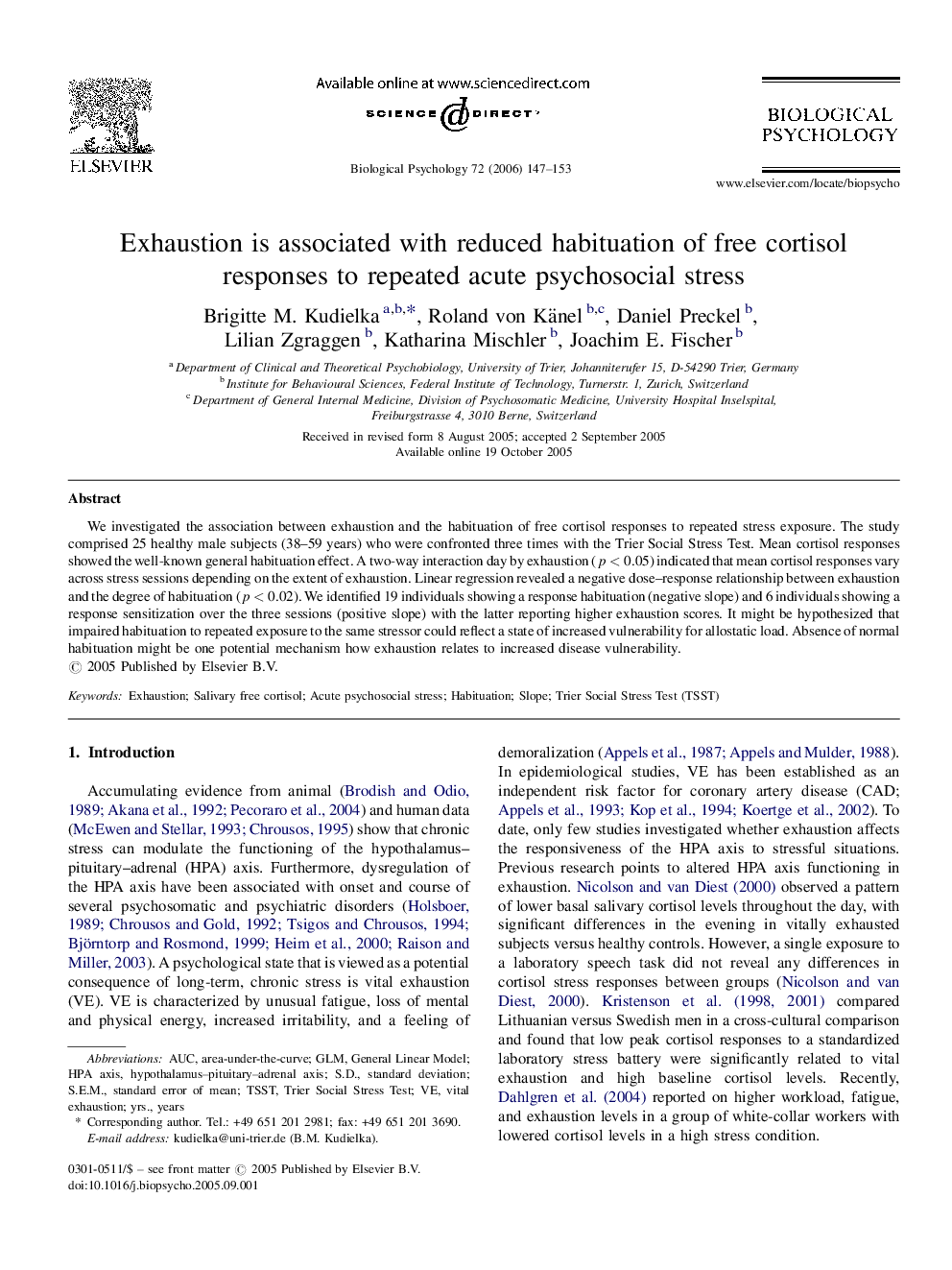| Article ID | Journal | Published Year | Pages | File Type |
|---|---|---|---|---|
| 921701 | Biological Psychology | 2006 | 7 Pages |
We investigated the association between exhaustion and the habituation of free cortisol responses to repeated stress exposure. The study comprised 25 healthy male subjects (38–59 years) who were confronted three times with the Trier Social Stress Test. Mean cortisol responses showed the well-known general habituation effect. A two-way interaction day by exhaustion (p < 0.05) indicated that mean cortisol responses vary across stress sessions depending on the extent of exhaustion. Linear regression revealed a negative dose–response relationship between exhaustion and the degree of habituation (p < 0.02). We identified 19 individuals showing a response habituation (negative slope) and 6 individuals showing a response sensitization over the three sessions (positive slope) with the latter reporting higher exhaustion scores. It might be hypothesized that impaired habituation to repeated exposure to the same stressor could reflect a state of increased vulnerability for allostatic load. Absence of normal habituation might be one potential mechanism how exhaustion relates to increased disease vulnerability.
